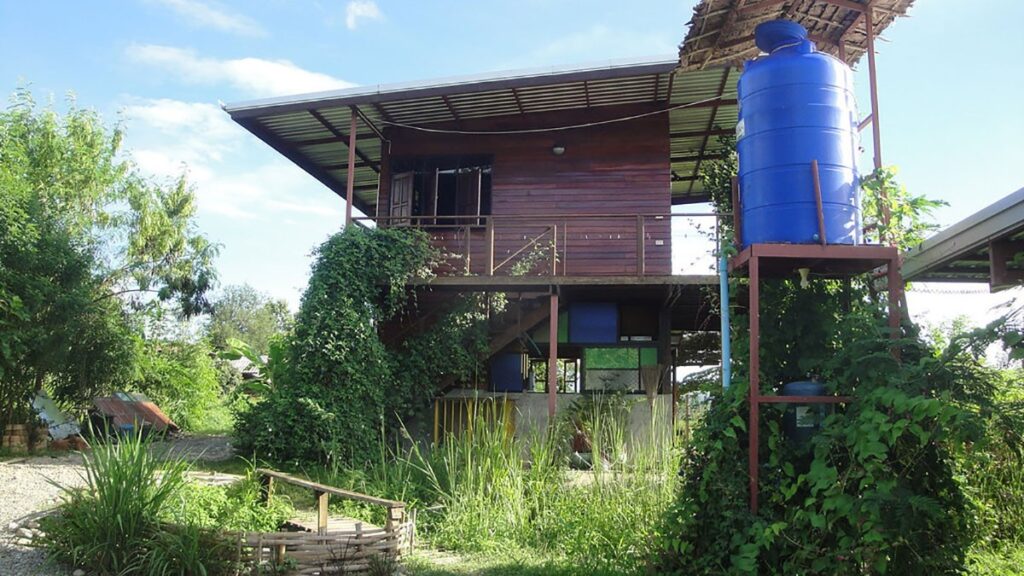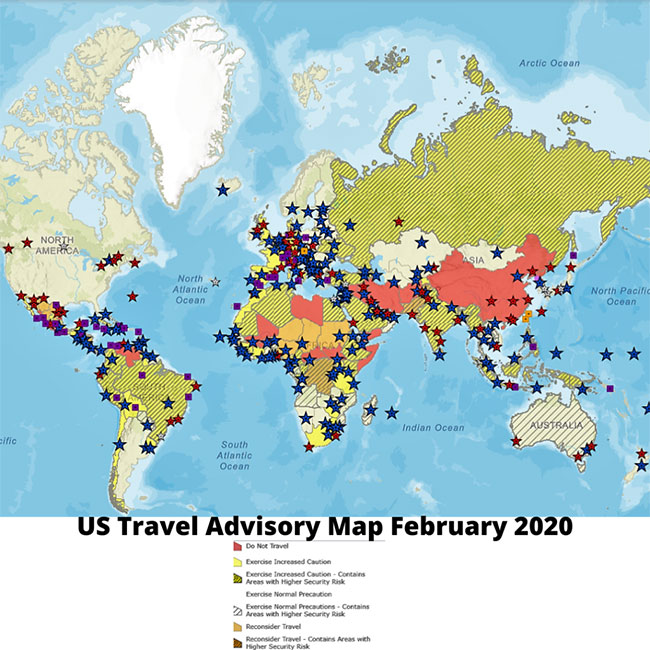
With the current political and economic crisis in many countries, the appeal of becoming an expat grows daily for many. Of course, the ideal place to set up your new home is in a country that not only is affordable but also has fewer safety concerns than the country you are leaving.
So how can you determine the relative safety of a country you are considering as your next prepper location?
Expat Groups
Since you are determined to be prepared, you may join a few expat groups centered around the countries that you are considering. Unfortunately, when you ask about safety concerns, you’ll get the full gamut of responses from the local expats, some saying they have never felt safer and others expressing real safety concerns. Regrettably, since you can’t gauge the trustworthiness of the comments, most of the information will be useless.
Or, your question thread about safety might get shut down by a moderator for being “inappropriate.” We can’t be scaremongering now, can we?
Having seen this happen time and time again in those expat groups, here’s my suggestion. Make a general post about being interested in a certain area or city and ask people who live there to recommend a specific type of service, like a vet clinic or hair salon. Those who actually live in the area will be happy to be of assistance. Once they’ve made a suggestion, ask if you can privately message them for more information. In the private message, not in the group, you can discuss more safety-relevant concerns. You’ll get more reliable information that way.
If you’re stymied by the online groups, you might try other means of investigation. Maybe you’ll join an online expat organization and ask there, only to be met with the same sort of treatment. After all, most expat organizations have an agenda. They make money by touting a particular area as “the best” in expat living.
Travel Advisories

You could check out travel advisories and see where in the world is safe, according to your home country. As you can see from the image above, the US has pretty much declared every country but Canada, Botswana, Kazakhstan, Greenland, and Argentina dangerous places to visit. Notice that the US feels travel within the country is safe enough. However, other countries like the UK, Venezuela, Japan, and New Zealand have issued their own travel advisories against traveling in the U.S. because of potential terrorist attacks and violence.
How accurate is this information anyway? I’m going to use travel advisories about Mexico as an example since it’s the country I happen to live in at the moment. Mexico has 32 states. Of those states, the US advises against traveling to five, Canada advises its citizens to avoid 12, and the UK warns about traveling in seven states. However, not one of these three countries warns against traveling to the state of Guanajuato which is the deadliest state in the country at the moment due to cartel violence and incidentally a mecca for expats moving to Mexico.
So overall, the travel advisories probably won’t be as helpful as you might like.
Local News
Some travel sites suggest keeping an eye on the local news to gauge safety levels. While the trend in the US is for local news coverage of sensational events, that isn’t as true in other countries. Let me give you another personal example.
Last week, there was a shooting in front of the home and business of someone I know personally. Concerned about my friend’s welfare, I tried to find information in the local newspaper and online sites about the shooting. I did finally find a brief article by a newspaper based in an entirely different state since not one local news agency reported about it. The news in Mexico is heavily censored. In fact, it is more dangerous to be a journalist in Mexico than it is in Syria.
So local news reports won’t be as helpful as you might like in many countries when determining the safety level.
Crime Stats
You might be able to look at crime statistics for some countries, like Canada or Germany if you are looking at relocating to those areas. They may or may not be of assistance when planning your expat escape route.
Looking at the worldwide crime stats might help you to eliminate or consider different countries.
For example, the country with the highest crime rate currently is Venezuela. The political situation in that country is extremely volatile leading to civil unrest and an overall less than ideal living situation. On the other hand, stricter gun laws keep crime low in New Zealand, Switzerland, Denmark, Japan, and Norway.
You aren’t going to get a lot of information about day to day crime, but crime stats can give you a broad overview of certain areas.
Local Residents
You might get reliable information if you talk to local residents. However, you still might not get the whole truth from local residents. Some may inflate the danger level to try and keep foreigners out of the area since an influx tends to drive up real estate prices. Others may lie about actual dangers out of a sense of loyalty or national pride.
So you’ll have to take what the local residents say with a grain of salt.
Visit
If you are able to spend some time in each of the areas you are considering, you might get a better feel for the level of safety through observation and personal experience. Pay attention to the amount of foot traffic during evening hours. If locals feel comfortable enough to be out of doors after dark, there may be fewer security issues in that area.
Factor in local culture when getting the lie of the land. For instance, just because every house has bars on the windows, doesn’t mean it’s necessarily a high-crime area. That may be just how the houses are constructed generally.
Expat Prepper Location Recap
As you can see, finding your next international prepper location may not be as easy as you had hoped. That doesn’t mean relocating to another country is a terrible idea, however. Many countries, even those that are listed in the travel adversaries, have a lower cost of living or other factors that would make them an excellent place to set up.
The key is for you to do your due diligence before pulling up stakes and making an international move. Expat preppers are found in every country in the world. Why not consider it yourself?
